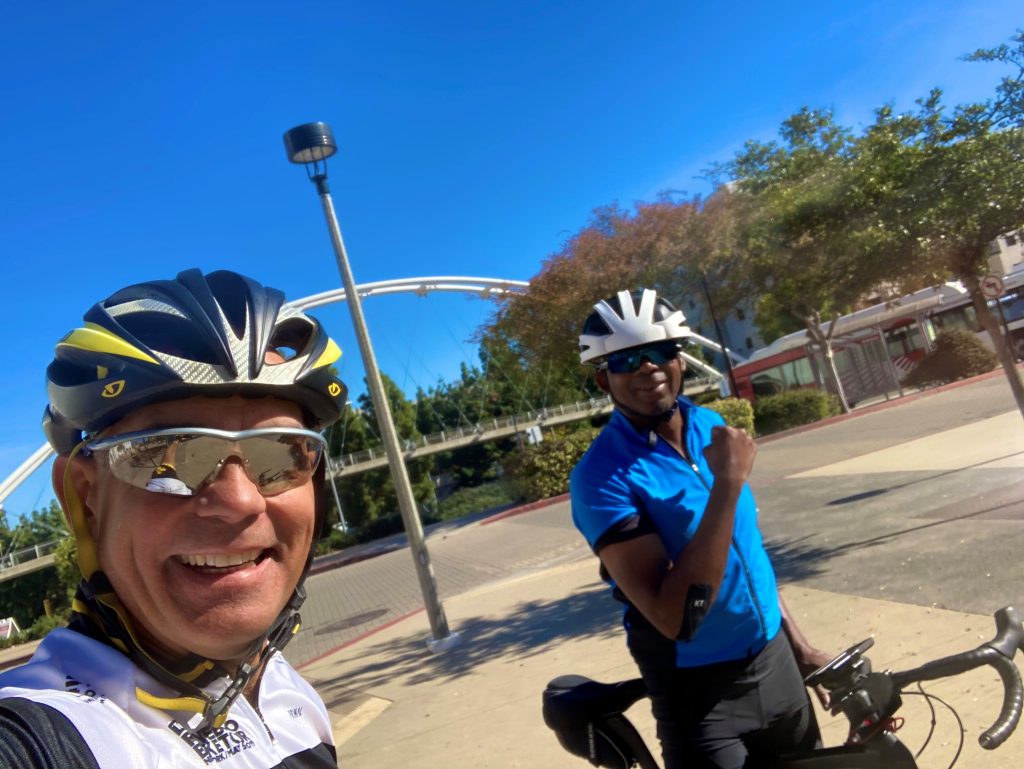A Great Start: Interim Executive Director Named for the CSU Shiley Haynes Institute for Palliative Care
As the year draws to a close most of us spend time reflecting on where we have been in the last 12 months and where we are going. This is certainly true for me this year, as I’ve returned to the Institute in a new capacity to continue the great work of our most recent Executive Director, Jennifer Ballentine. In November 2022, I was delighted to assume the role of the Interim Executive Director of the CSU Shiley Haynes Institute for Palliative Care.
The Institute is not new to me – I have been deeply involved with it since its launch, including serving a 5-year term as the first Faculty Director of a campus partner institute office, the CSU Shiley Haynes Institute for Palliative Care at CSUSM. I built that office in collaboration with passionate individuals who wanted to be a part of this new vision for healthcare that embraces the whole person and their families. Together we established a number of programs including “What Gives Your Life Meaning?®”, a campaign to encourage people to complete advance directives, and “Aging with Grace,” an educational program focused on family caregiving and advance directives, offered to the community in partnership with local faith-based institutions. Through these years I was always amazed at how many people approached this work in palliative care with the question, “how can I help?”. These values of compassion and service are alive and well today, as I learned in my first month in this position.
I was approached by two members of CSUSM’s Safety, Health and Sustainability department, Vance Kekoa and Regina Fresca, just before Thanksgiving to discuss Giving Day. Vance shared with me the story of a CSUSM student he met who had been diagnosed with cancer. He was concerned about the heavy burden that this student faced, including the student’s heart wrenching question, “should I continue my education – what if I’m not here?” He said that we need to do something to help students like this one, and wanted to give not only his donation, but his time and talents to help create programming to support these students.
I spoke with Vance and Regina about the need for campuses to understand who their students are, including the 17% dealing with chronic illnesses1, the 1 in 100 college students living with cancer2 the estimated 5 million college students who are currently providing care to adults3, and the 20-30% who are actively grieving the loss of a loved one4. These students are faced with the question of whether to continue their educations each and every day – and this includes students who are pursuing careers in health and health-related fields. Students often leave college because of their own illness or the need to take on a larger role in the care of loved ones. Quite frankly, higher education needs to do a better job of addressing the needs of these students as little to no programming exists nationally.
This is certainly a question about students’ social mobility and an institution’s ability to effectively guide them through their academic programs and to graduation, ultimately leading to careers and better paying jobs. This lifts both the students and their families. This is a cause that is near and dear to CSUSM’s President Ellen Neufeldt; CSUSM currently ranks #1 in the nation in social mobility. But it is also a broader issue of meeting a critical work force need: training and graduating students in the physical and mental health care professions. How can we address the current shortage in the healthcare professions if we don’t address the needs of students currently working toward degrees and who will one day fill these positions?
Someone needs to do something. And many people working with the Institute are doing just that.
CSU Palliative Care Pathfinders

On Saturday, January 14th, Vance was joined by his colleague, George Williams, and other committed individuals to ride their bikes from San Diego State University to CSUSM. Their goal: to raise funds to support programming for students pursing degrees while dealing with their own serious illness, the serious illness of a loved one, or grieving the loss of someone close to them. The goal? To help to establish the CSU Palliative Care Pathfinders program to ensure that campuses in the CSU System have specialized programs and support to help these students navigate their challenges, find a way to graduation, and into the workforce. They plan on eventually riding to all 23 campuses in the system.
I encourage you to follow and support Vance and George in their journey to promote palliative care education and services to students in the CSU.
And stay tuned in 2023 for more information on this new program as we work with colleagues across the CSU to help our students find a path, meet their goals, and ensure that healthcare has the professionals it needs to provide the highest quality of care for all of us.
How to Support CSU Palliative Care Pathfinders
- If you’d like to support their efforts to establish this program, you can donate now and type “CSU Palliative Care Pathfinders” in the gift instructions.
1 Watson, S. (2021). Managing the stress of chronic disease at college. Retrieved December 9, 2022.
2 Kaple, T. and Tom, S. (2022). Support for College Students with Cancer. Retrieved December 5, 2022.
3 Skufca, Laura and Ian Hartman O’connell. Staying the Course: How Dual Responsibilities Create Challenges for Student Caregivers. Washington, DC: AARP Research, September 2020.
4 Balk, D. E. (2008). Grieving: 22 to 30 percent of all college students. New Directions for Student Services, n121, 5-14.




